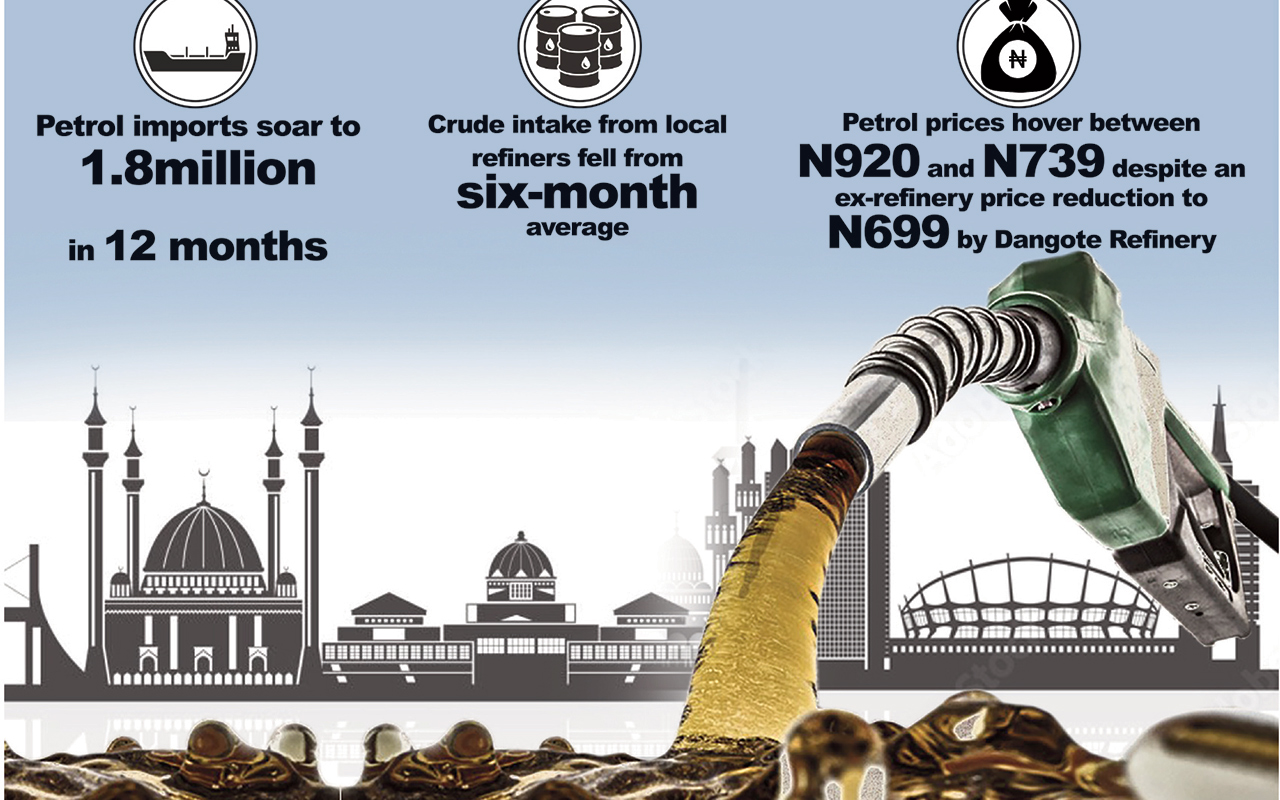With the recent global crude oil shocks, Nigeria’s production declined to 1.39 million barrels per day (mbpd) in September 2025, marking the second consecutive month of reduced output, according to the latest Monthly Oil Market Report (MOMR) released yesterday by the Organisation of the Petroleum Exporting Countries (OPEC).
Despite the development, marketers increased the pump price of Premium Motor Spirit (PMS), also known as petrol.The 1.39mbpd figure, representing a decline from 1.434mbpd recorded in August, is the lowest in seven months, falling below Nigeria’s OPEC allocation of about 1.5 million bpd for the month.
OPEC stated that the production figures were “obtained through direct communication with Nigerian authorities.” The organisation typically sources its crude oil output data from two channels: direct communication with member countries and secondary sources such as energy intelligence platforms.
The latest OPEC report comes just days after the Nigerian Upstream Petroleum Regulatory Commission (NUPRC) had reported that Nigeria’s crude oil and condensate production dropped to an average of 1.581mbpd in September 2025.
According to the commission’s figures, the total consisted of 1.39mbpd of crude oil and 191,373bpd of condensates. NUPRC attributed the decline primarily to the three-day industrial action embarked upon by the Petroleum and Natural Gas Senior Staff Association of Nigeria (PENGASSAN) in the month under review.
The strike led to the shutdown of many production and export facilities, disrupting output and export schedules. In a letter dated September 29, 2025, the Group Chief Executive Officer of Nigerian National Petroleum Company Limited (NNPCL), Bayo Ojulari, informed regulators that the industrial action had resulted in significant production deferments and projected revenue losses due to missed crude liftings and reduced gas sales.
AS of yesterday, most filling stations in Abuja had adjusted prices upward, with the Nigerian National Petroleum Company Limited (NNPCL) retail outlets selling petrol at N955 per litre, from N905 per litre last week.
The hike comes even as international oil prices remain subdued, at below $65 per barrel, compared with the $69 per barrel peak recorded on September 26.
Across the capital city, unusual fuel queues reappeared in some stations, and black market traders also resurfaced in several areas. A member of the Major Energy Marketers Association of Nigeria (MEMAN) told The Guardian that the adjustment reflected “a return to market realities” after weeks of “price suppression by major players.”
According to him, most operators, including Dangote Petroleum Refinery, have resumed imports. He warned that the product might become slightly scarce in the coming weeks due to foreign exchange constraints and supply logistics.
Last week, Dangote Petroleum Refinery dismissed the claims that it was importing low-quality petrol, adding, however, that it imported intermediate feedstock.
While it is not a final, retail-grade fuel, intermediate feedstock is blended to give the right specification. It also could mean that sections of the Dangote Refinery were down.
Meanwhile, the former President of the Nigerian Association for Energy Economics (NAEE), Prof. WunmiIledare, said Nigeria’s economy was still grappling with the combined effects of the COVID-19 pandemic, the removal of subsidies, and the floating of the naira.
He argued that structural weaknesses and overreliance on imported fuel continue to undermine price stability, adding that with effective governance, petrol could sell for around N800 per litre.
The latest price adjustment is expected to further strain households already facing rising inflation and increased living costs amid Nigeria’s fragile economic recovery.






